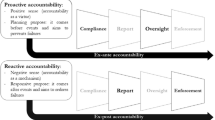Abstract
The peculiarity of the relationship between philosophy and Artificial Intelligence (AI) has been evidenced since the advent of AI. This paper aims to put the basis of an extended and well founded philosophy of AI: it delineates a multi-layered general framework to which different contributions in the field may be traced back. The core point is to underline how in the same scenario both the role of philosophy on AI and role of AI on philosophy must be considered. Moreover, this framework is revised and extended in the light of the consideration of a type of multiagent system devoted to afford the issue of scientific discovery both from a conceptual and from a practical point of view.
Similar content being viewed by others
References
Akman, V. (2000), ‘Introduction to the Special Issue on Philosophical Foundations of Artificial Intelligence’, Journal of Experimental and Theoretical Artificial Intelligence 12, pp. 247–250.
Amigoni, F., Schiaffonati, V. and Somalvico, M. (1999a), ‘Processing and Interaction in Robotics’, Sensors and Actuators A: Physical 72, pp. 16–26.
Amigoni, F., Somalvico, M. and Zanisi, A. (1999b), ‘A Theoretical Framework for the Conception of Agency’, International Journal of Intelligent Systems 14(5), pp. 449–474.
Amigoni, F., Schiaffonati, V. and Somalvico, M. (2002), ‘Multiagent Systems for Supporting and Representing Social Creativity in Science', in Proceedings of AISB'02 Symposium on Artificial Intelligence and Creativity in Arts and Science, The Society for the Study of Artificial Intelligence and Simulation of Behaviour, London.
Boden, M. (1990), The Philosophy of Artificial Intelligence, Oxford: Oxford University Press.
Bond, A. and Gasser, L. (1988), Readings in Distributed Artificial Intelligence, San Mateo, CA: Morgan and Kaufmann.
Bratman, M. (1987), Intention Plans, and Practical Reason, Cambridge, MA: Harvard University Press.
Bratman, M. Israel, D. and Pollack, M. (1991), ‘Plans and Resource-Bounded Practical Reasoning', in R. Cummins and J. Pollock, eds., Philosophy and AI, Cambridge MA: MIT Press, pp. 7–21.
Bynum, T.W. (1985), Computers and Ethics, Oxford Readings in Philosophy, Oxford: Oxford University Press.
Churchland, P. (1990), ‘Some Reduction Strategies in Cognitive Psychology', in M. Boden, ed., The Philosophy of Artificial Intelligence, Oxford: Oxford University Press, pp. 334–367.
Cummins, R. and Pollock, J. (1991), Philosophy and AI, Cambridge, MA: MIT Press.
Dahl, O. (1989), ‘Contextualization and De-Contextualization', in R. Studer, ed., Natural Language and Logic, Lecture Notes in Artificial Intelligence, Berlin: Springer-Verlag, pp. 62–69.
Dennett, D. (1991), Counsciousness Explained, Boston: Little Brown & Company.
de Jong, H. and Ripp, A. (1997), ‘The Computer Revolution in Science: Steps Toward the Realization of Computer-Supported Discovery Environments’, Artificial Intelligence 91, pp. 225–256.
Elgot-Drapkin, J., Miller, M. and Perlis, D. (1991), ‘Memory, Reason, and Time: The Step-Logic Approach', in R. Cummins and J. Pollock eds., Philosophy and AI, Cambridge, MA: MIT Press, pp. 79–103.
Ferber, J. (1999), An Introduction to Distributed Artificial Intelligence, Reading, MA: Addison-Wesley.
Floridi, L. (2002), ‘What is Philosophy of Information?’ Metaphilosophy 33(1/2) pp. 133–145.
Giere, R. (1988), Explaining Science. A Cognitive Approach, Chicago: The University of Chicago Press.
Langley, P., Simon, H., Bradshaw, G. and Zytkow, J. (1987), Scientific Discovery: Computational Explorations of the Creative Processes, Cambridge, MA: The MIT Press.
Langley, P. (2002), ‘Lessons for Computational Discovery of Scientific Knowledge', in Proceedings of First International Workshop on Data Mining Lessons Learned, Sydney, Australia.
Longino, H. (1990), Science and Social Knowledge, Princeton, NJ: Princeton University Press.
McCarthy, J. (1995), ‘What Has AI in Common with Philosophy?’ in Proceedings 14th International Joint Conference on AI, Montreal, Canada, August.
McCarthy, J. (1989), ‘Philosophical and Scientific Presuppositions of Logical AI', in H.J. Levesque and F. Pirri, eds., Logical Foundations of Cognitive Agents: Contributions in Honor of Ray Reiter, Berlin: Springer.
Minsky, M. (1985), The Society of Minds, New York: Simon & Schuster.
Pollock, J. (1991), ‘OSCAR: A General Theory of Rationality', in R. Cummins and J. Pollock, eds., Philosophy and AI, Cambridge, MA: MIT Press, pp. 189–211.
Popper, K. (1959), The Logic of Scientific Discovery, New York: Harper and Row.
Ringle, M. (1979), Philosophy Perspectives in AI, Atlantic Highlands, NJ: Humanities Press.
Searle, J. (1980), ‘Minds, Brains, and Programs’, The Behavioral and Brain Sciences 3, pp. 417–424.
Simon, H. (1995), ‘Artificial Intelligence as an Empirical Science’, Artificial Intelligence 77, pp. 95–127.
Sloman, A. (1995), ‘A Philosophical Encounter', in Proceedings 14th International Joint Conference on AI, Montreal, Canada, August.
Sloman, A. (1978), The Computer Revolution in Philosophy, Atlantic Highlands, NJ: Humanities Press.
Thagard, P. (1988), Computational Philosophy of Science, Cambridge, MA: MIT Press.
Thagard, P. (1989), Conceptual Revolutions, Princeton, NJ: Princeton University Press.
Turing, A. (1950), ‘Computing Machinery and Intelligence’, Mind LIX 2236, pp. 433–460.
van Fraassen, B. (1980), The Scientific Image, Oxford: Clarendon Press.
Weiss, G. (1999), Multiagent Systems: An Introduction to Distributed Artificial Intelligence, Cambridge, MA: MIT Press.
Winograd, T. and Flores, F. (1987), Understanding Computers and Cognition. A New Foundation for Design, Reading, MA: Addison-Wesley.
Wooldridge, M. (2002), An Introduction to Multiagent Systems, New York: John Wiley & Sons.
Author information
Authors and Affiliations
Rights and permissions
About this article
Cite this article
Schiaffonati, V. A Framework for the Foundation of the Philosophy of Artificial Intelligence. Minds and Machines 13, 537–552 (2003). https://doi.org/10.1023/A:1026252817929
Issue Date:
DOI: https://doi.org/10.1023/A:1026252817929



